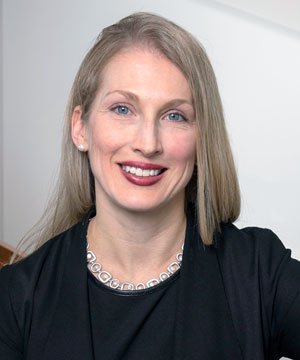 Welcome back to the Women Leading in Law blog series. I have been posting on a daily basis, but, as we are all getting used to new routines, the profiles will be posted with less frequency. They will still be coming, though, so stay tuned! Today we have the pleasure of learning from Carissa Tanzola and employment and labour lawyer: 1. Tell me a little about your practice or business: As a partner at Filion Wakely Thorup Angeletti LLP, I represent both unionized and non-unionized employers in all aspects of employment and labour law. However, over the years I have developed a specialty in workplace accidents, occupational health and safety, workers’ compensation, human rights, disability management and accommodation. I am particularly interested in how these issues intersect in multiple and/or concurrent jurisdictions. Alongside my practice, I have been an active volunteer with the Ontario Bar Association’s Labour and Employment Section Executive for 10 years (having Chaired twice). In 2019, I began volunteering with Pro Bono Ontario’s free legal advice hotline and have agreed to assist with legal content for the ROSA initiative (digital access to justice and training with respect to workplace sexual harassment and funded in part by the Government of Canada’s Workplace Harassment and Violence Prevention Fund). I believe that as lawyers, we have a unique opportunity to help others, and I try to do that. 2. Why did you go to law school? Growing up, I always wanted to be a lawyer. I even completed an undergraduate degree in Political Science in hopes that it would look better on a law school application (it was fortuitous that I enjoyed the courses!) However, as I was applying to law school, I began to worry that I was proceeding because it was my “plan” rather than what I really wanted. I ultimately chose to continue with the application and attend law school because I felt reassured that a legal degree would be generally useful. It was absolutely the right choice and I love being a lawyer. For me, meeting new people, learning about different industries and businesses and assisting clients navigate important legal issues is very fulfilling. 3. How did you get to where you are today? Design? Chance? Both? Like most, I got to where I am today by both design and chance. During my second year of law school, I met a leading labour and employment lawyer at an event about practicing labour and employment law. After the panel discussion, I gathered my courage to approach him and asked if I could speak to him again about his practice. Perhaps not expecting me to accept, he invited me to observe a hearing that summer. I believe my early bold networking efforts set me apart from other summer student applications, helped secure my summer student position, and paved the way for me to continue in the area of labour and employment law. Developing my practice in workplace accidents, workers’ compensation, human rights and disability management happened gradually, but with purpose. I was enthusiastic about these areas and, as such, actively sought to work with lawyers who had specialized expertise and could support my practical education and professional development. By just popping into colleagues’ offices to inquire about what they had on their plate connected me to some really important files that were key to my growth. About two years after the birth of our first child, I was appointed to the Workplace Safety and Insurance Appeals Tribunal (WSIAT) as a Vice Chair. I believe my skill-set was uniquely suited to the role and the opportunity came at a time where I needed to slow down and assess what I wanted, professionally. It was an invaluable experience. I really enjoyed my time at the WSIAT and believe adjudicating cases and writing decisions has given me a unique perspective on the practice of law. However, I also became keenly aware of how important managing issues of overlapping jurisdiction is for employers and I found myself wishing I was able to assist more in that regard rather than merely adjudicate the very specific issues I was seized with. In late 2018, just after the change in the provincial government and while I was waiting for confirmation of my reappointment to the WSIAT, I was invited into the partnership at Filion Wakely Thorup Angeletti LLP where I could continue my general practice of labour and employment, as well as continue to build my more specific practice of workplace accidents and injuries, workers’ compensation, human rights, accommodation and disability management. I seized the opportunity. In short, where I am today is equal parts creating my own path, building and solidifying a foundation upon which to draw, and unapologetically looking for and taking opportunities that work for me and for my family. In my case, I didn’t realize how much I enjoyed private practice until I was missing it. 4. What is your most significant achievement? What are you proud of? Of course, I am proud of my two amazing children (ages 5 and 3). They keep me grounded and remind me of what is truly important. I don’t think there is one situation or case I am most proud of. Some have been a lot of fun and true successes. Others have taught me a lot. For me, my achievements are a collection of cumulative experiences:
5. What are some key challenges, and more importantly, opportunities for women in law? Since my call in 2008 to now, I believe things have changed for women in the practice of law and that they will continue to change – for the better. However, being an ambitious female lawyer with a young family means I am continually trying to “balance” multiple responsibilities and interests, and sometimes I feel that I have to justify my choices. Thankfully, I have had some impressive women role models and mentors who have helped me to navigate these challenges. Women are strong and capable, and there is increasing support for women to speak up and be relentless and unforgiving in doing so. I believe women have a unique perspective and that they need to be heard. This change is starting to occur and perhaps in the future it won’t even take a second thought. I am also encouraged to see so many women support each other and build each other up. With initiatives like Women Leading in Law, it can only improve further. 6. What advice would you give a woman starting her legal career? Some of the advice I have been given by amazing females (both lawyers and otherwise), as well as some of my own advice is as follows:
Thank you Carissa for your wise words and for taking the time to participate in this series. I started this blog series because I was tired of hearing about women leaving law and wanted to hear about women leading in law. The "Women Leading in Law" series focuses on good news stories and highlights amazing women succeeding in the legal profession. Each post includes the profiled lawyer's answers to six questions. Prepare to be inspired! ICYMI - previous posts profiled the following amazing lawyers: Sarah Leamon, Robin Parker, Lorin MacDonald, Karen Yamamoto, Victoria Crewe-Nelson, Lynne Vicars, Kemi Oduwole, Anne-Marie McElroy, Jennifer Gold, Jordana Goldlist, Megan Keenberg, Yadesha Satheaswaran, France Mahon, Sarah Molyneaux, Richa Sandill, Vivene Salmon, Kim Whaley, Alisia Grenville, Frances Wood, Maggie Wente, Anita Szigeti, Neha Chugh, Christy Allen & Nancy Houle, Suzie Seo, Kim Gale, Alexi Wood, Melissa McBain, Erin Best, Gillian Hnatiw, Melanie Sharman Rowand, Meg Chinelo Egbunonu, Lisa Jean Helps, Nathalie Godbout Q.C., Laurie Livingstone, Renatta Austin, Janis Criger, May Cheng, Nicole Chrolavicius, Charlene Theodore, Dyanoosh Youssefi, Shannon Salter, Bindu Cudjoe, Elliot Spears, Jessica Prince, Anu K. Sandhu, Claire Hatcher, Esi Codjoe, Kate Dewhirst, Jennifer Taylor, Rebecca Durcan, Atrisha Lewis, Vandana Sood, Kathryn Manning, Kim Hawkins, Kyla Lee, and Eva Chan.
0 Comments
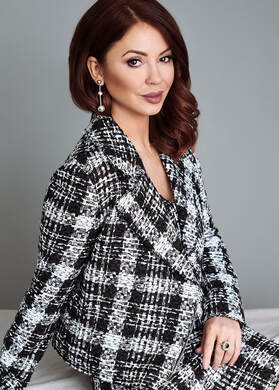 Articling student, Leah Coombs, reached out to suggest I profile lawyer Sarah Leamon in this series. Leah wrote: "I am inspired by her success as I am inspired by many of the women you have featured on this blog." Read on for Sarah's story: 1. Tell me a little about your practice or business. Sarah Leamon Law Group is a boutique law firm located in downtown Vancouver. We focus on criminal defence, administrative driving issues and family law. We are women-led and LGBT2Q inclusive. We handle sensitive, high-profile and complex cases. We strive to increase access to justice by offering cost effective, straight-forward services. We operate from a client-based perspective and provide personalized, one-on-one client care. We accept private retainers as well as legal aid files so that we can offer the same level of service for people, regardless of their financial status. We also foster a positive, relaxed office environment for those who work with us. We work as a team, which means that we help each other and support each other when needed. With myself, one associate, an assistant and two articled students, we know that mentorship is vitally important to our individual success and to the collective success of our team. 2. Why did you go to law school? At the beginning of my post-secondary career, I really had no ambitions of going to law school. I actually remember enrolling in my first-year undergraduate classes and confidently declaring that although I wasn’t sure what I ultimately wanted to do, I knew I didn’t want to do law. Fast forward five years and I was on my way to law school. I can’t really pin point what changed, but after completing two undergraduate degrees, I felt that law school was the natural next step in my academic career. I was angling towards a lifetime in academia so I wasn’t sure if I would ever actually practice law, but I figured that it was a good degree to have in my back pocket. By my second semester of law school, though, I was all in. I came to the realization that a career in law actually could be exciting. I developed a keen interest in criminal law. I took every criminal law course available. I loved the way that it intersected with other issues that I was passionate about. To my surprise, I became totally committed to the goal of pursuing a career in criminal defence. Looking back, I can’t really identify one driving force in my decision to go to law school but my parents focus on education throughout my life played a major factor in landing me there. I always say that my father told me to go to law school, but the truth is that both of my parents encouraged me along this path…and I am happy they did. 3. How did you get to where you are today? Design? Chance? Both? It would be foolish for me to think that I’ve arrived where I am today by either chance or design – it’s definitely been a combination of both. I certainly had many advantages growing up, including a relatively privileged socio-economic status and my parents emphasis on education, which I am thankful for. But I have always been competitive, ambitious and driven to succeed, so I think that those qualities have shaped my career and where I am today. I also believe that the people you meet and allow into your life have a big impact on where you end up. Some people are put into your life at a particular time to push you in one direction or another, some are there to test you or to teach you a lesson, some to inspire and others to guide. I have certainly had my fair share of mentors, mentees, adversaries and friends along the way. Each one of them has shaped my path. I am grateful to them all for inspiring me and for challenging me. Without them, I wouldn’t have taken the risks that I did - and I certainly wouldn’t have opened my own office, that’s for sure! 4. What is your most significant achievement? What are you proud of? I have been very fortunate to enjoy a number of achievements in my career thus far. The most obvious is the work that I do for my clients. I often deal with clients who are facing complex mental health and substance abuse issues. I approach them and their cases from a non-judgemental, rehabilitative and collaborative perspective. It is rewarding to see the long-lasting, life-changing difference that this can make for them. I have also had the opportunity to work on some exceptionally interesting cases. For example, working on the United States of America v. Wanzhou Meng case in December, 2018. This was an exceptional experience that stand out to me, among others. In addition to the work that I do for my clients, though, I am very proud of the fact that I was personally invited to appear before the House of Commons to provide a legal opinion about proposed amendments to the Criminal Code. When I received the e-mail invitation, I couldn’t believe it. Never in my wildest dreams had I imagined that I would be sought out and selected to give opinion on something so important in such an important forum. I was so nervous and I prepared myself endlessly for the appearance…but I must have done a good job because I was invited back to the House on three other occasions and once to the Senate! But that aside, I think that my most significant achievement to date has been successfully opening and operating my own law firm. Opening my own firm was not an easy decision for me. Ultimately, though, it was something that I had to do. There were many who doubted me and told me that I couldn’t do it on my own – but I did! I overcame a number of unexpected hurdles and obstacles very early on - immediately before and soon after opening - and as of today, my firm is not just surviving…it’s thriving, and I couldn’t be happier! It also helps that my decision to open my own office was validated very early on. Only a few months after opening our doors, I won Business in Vancouver’s prestigious Forty Under 40 award. I never imaged that I would be recognized with such an award, but needless to say I was thrilled. It really reaffirmed my decision to branch out on my own and taught me not to second guess myself. It gave me the confidence that I needed to trust myself and follow my instincts. 5. What are some key challenges, and more importantly, opportunities for women in law? As we know, the retention rate for women in criminal law – and particularly on the defence side of things – is dismal. I think that there are a number of challenges that are unique to women in this area, including the archaic public perception of what a criminal defence lawyer “looks like.” While this is changing thanks to some powerful key players in our community, it’s slow going – and that can be very frustrating for those of us who rely on client intake in order to make a living. Unfortunately, systematic discrimination and sexism is alive and well in nearly all corners of our society. The practice of law is no exception. Female-bodied lawyers are subject to increased criticism and scrutiny. They do not receive the benefit of assumed competence that many of their male counterparts do. As for myself, I have experienced sexual harassment and gender-based discrimination at various points in my career, and I am hard pressed to think of a single female-bodied colleague who has not. I think the upside of this (if any) is that, in today’s political climate, many of us are no longer turning a blind eye to it or tolerating it. Things like the #metoo movement have given women the power and confidence to speak out and share their experiences with sexism, which is a necessary step on the path to real change. But it’s not all doom and gloom. There are countless opportunities available to women in law today. For example, groups and organizations for female lawyers have popped up in nearly every jurisdiction across the country. These can offer excellent opportunities for support, mentorship and the development of practical skills. I founded the Women’s Association of Criminal Lawyers B.C. in 2017, because I am passionate about creating opportunities for women in criminal law through this organization. I believe in opportunity through inclusion. Women are strongest together and by lifting each other, we lift ourselves. 6. What advice would you give a woman starting her legal career? Volunteer. Give back to your community. Align yourself with strong women, both inside the legal profession and outside. Don’t take no for an answer. If you fail, try again. Don’t give up. Respect yourself and know your worth. And – of course - don’t take no crap from nobody. ---------------------------------------------------------------------------------------------------------------------------- Thank you Sarah for your advice and letting us have a glimpse into your legal career. I started this blog series because I was tired of hearing about women leaving law and wanted to hear about women leading in law. The "Women Leading in Law" series focuses on good news stories and highlights amazing women succeeding in the legal profession. Each post includes the profiled lawyer's answers to six questions. Prepare to be inspired! ICYMI - previous posts profiled the following amazing lawyers: Robin Parker, Lorin MacDonald, Karen Yamamoto, Victoria Crewe-Nelson, Lynne Vicars, Kemi Oduwole, Anne-Marie McElroy, Jennifer Gold, Jordana Goldlist, Megan Keenberg, Yadesha Satheaswaran, France Mahon, Sarah Molyneaux, Richa Sandill, Vivene Salmon, Kim Whaley, Alisia Grenville, Frances Wood, Maggie Wente, Anita Szigeti, Neha Chugh, Christy Allen & Nancy Houle, Suzie Seo, Kim Gale, Alexi Wood, Melissa McBain, Erin Best, Gillian Hnatiw, Melanie Sharman Rowand, Meg Chinelo Egbunonu, Lisa Jean Helps, Nathalie Godbout Q.C., Laurie Livingstone, Renatta Austin, Janis Criger, May Cheng, Nicole Chrolavicius, Charlene Theodore, Dyanoosh Youssefi, Shannon Salter, Bindu Cudjoe, Elliot Spears, Jessica Prince, Anu K. Sandhu, Claire Hatcher, Esi Codjoe, Kate Dewhirst, Jennifer Taylor, Rebecca Durcan, Atrisha Lewis, Vandana Sood, Kathryn Manning, Kim Hawkins, Kyla Lee, and Eva Chan. 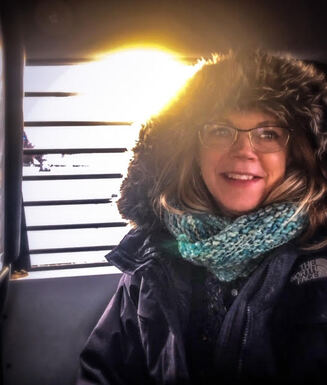 Meet Robin Parker, today's leading lawyer profile. Robin's colleague, Megan Andrews, reached out to me with a lovely email explaining why Robin should be featured in this series, including that Robin "is – and excuse my corniness – honestly a beacon of goodness in a system that too often feels broken". I don't think that is corny at all and we need more "beacons of goodness". Read on for Robin's story. (p.s. Robin provided the following interesting information about her photo: The photo I am attaching was taken in the back of an RCMP truck in Fort Good Hope, NWT. We were on our way from the airport to the community centre to run the circuit court. Note the bars on the windows! In addition, there were two shotguns in the gun well on the other side of the bars and plexiglass divider between the front and back seats. Quite naturally, the two defence lawyers gravitated to the back seat and the Crown sat up front.) 1. Tell me a little about your practice or business. I’m a litigator and problem solver, specializing in criminal and regulatory law. My practice is quite diverse. I do criminal and regulatory litigation- trials or hearings and appeals. I am really lucky to get a lot of referral work from other lawyers, so usually there is some wrinkle to the case to make it interesting, like a tricky ethical or procedural issue. I also do a lot of work with sex assault complainants and have mediated sexual assault allegations outside the criminal justice system- extremely gratifying work. The second part of my practice is institutional or workplace investigations, often relating to sexual assault or harassment. I gather evidence and make findings about what happened. I really enjoy asking questions with no agenda other than the truth and I find it interesting to learn how these kinds of allegations arise. In fact, I am endlessly curious about what people do and why. I suppose this is why I like criminal law. The third part of my practice is quite exciting – I work for Northwest Territories Legal Aid as defence counsel in trials and appeals. There are no words to describe the beauty of the people and the land. We fly into remote communities, many of which are only accessible by air (or boat in summer.) We arrive at dawn and literally build the court in the school gym or band office, and we stay until the last case is finished. I would say this is often after sundown, but the sun does not always rise or set in the north. Many of my clients have experienced personal and inter-generational trauma, and struggle with addiction, poverty, physical and sexual abuse. It is a real privilege to be able to build a relationship of trust with my Northern clients. NWT is on complete lockdown because of Covid, and I am really missing it. I should say this is just what I’m doing right now. I’ve been a lawyer long enough that I’ve worked on a lot of different things. For years I specialized in international criminal law. I worked on some exciting extradition and war crimes cases. I worked with the special advocates on the security certificate litigation, and I taught international criminal law in the LLM program at Osgoode. Every now and then an international case crosses my desk, or I’m asked to be a pundit on something like the Meng extradition, but these days my attention is mainly focussed on what we are doing here at home. 2. Why did you go to law school? Unlike many of our colleagues, I am not someone who always wanted to be a lawyer. I wanted to help people and be intellectually engaged, which I get to do every day in my work. I was an extremely idealistic young woman and believed that I could make the system better from the inside – which is why I started out as a prosecutor. Fact is, I am still pretty idealistic. I believe that justice is worth fighting for, and that with work, we can get there. 3. How did you get to where you are today? Design? Chance? Both? i) By aligning my work with my values and taking risks when I felt I needed to learn or grow professionally. To do this you need to know what your values are, and what you want from your work, and your life. Then you need to adjust your work and life. It takes persistence and patience. ii) Passion and hard work. In the beginning I lived, breathed, ate, and slept criminal law. I still do when I am in the grip of a case. iii) Making sure there are people in my orbit I can learn from. If there aren’t people in your circle you admire and look up to, change your orbit. iv) And privilege. I do not come from a family of means – I worked pretty much full time in undergrad and spent a decade paying back loans after law school. I was the first person in my family to get a post-secondary education. Still, I was privileged to be able to access the education and community I did to be able to have this career. 4. What is your most significant achievement? What are you proud of? I’m a single mom. I’ve raised a smart, thoughtful and interesting young woman. She is not my achievement - she is her own achievement! But raising her while being a criminal litigator has, and continues to be, my greatest challenge, and what I am most proud of. It has been incredibly difficult. She is on the autism spectrum and trying to get her the support and help she needed when she was younger was near to impossible. But somehow, we did it together. I have always involved her in my work (she’s reading this as I write it!) She built cushion forts in the lawyer’s lounge at 361 University while I waited for juries and toured the courts at Old City Hall. She attended my graduation at Oxford. Afterward, we went to the best bookstore in the world - Blackwell’s - where I bought her as many books as she could carry. I wanted to thank her for the sacrifices she made while I was apart from her in England for two summers. I don’t want to romanticize it. Many days I was heartbroken, being torn between wanting to achieve at high levels professionally and needing to care for her. There were times when she needed me and I could not be there. It is not possible to “have it all” and “leaning in” is the privilege of women who have economic and family resources I did not. While I was not able to do nearly as much law as I wanted, when I look back, I see that I have done a lot of interesting and good work, while protecting the most important thing - a strong relationship with my daughter. It was hard work all around, which is why I say it is an achievement. Professionally, what resonates the most deeply as I look back are the differences I managed to make for individual clients. These achievements are very private, and look small from the outside, but they give me the greatest pride. A client once said, “I have never thought about my life the way you described it to the judge. Now I understand how I ended up in trouble, and how to stay out of it in the future.” Another client gave me an eagle feather, which I treasure. These kinds of achievements don’t make the Globe and Mail or the Supreme Court Reports; still they mean the most to me. 5. What are some key challenges, and more importantly, opportunities for women in law? We forget that women have not been in law that long. My first boss was one of two women in her graduating class. When I started out, there wasn’t a washroom for women barristers on every floor at 361 University. My first day in court, the judge told me, on the record, that I made him think “inappropriate thoughts.” At Abdullah Khadr ‘s extradition bail hearing on charges of being an Al Qaeda arms dealer, defence counsel asked me when the assigned Crown would arrive. “You’re looking at her!” I replied. While I was still at Justice, another boss told me he didn’t assign me to a terrorism case because he thought it was likely I was going to have a baby (I was 41.) And so on. Litigators my age have legions of stories like this. My approach to this nonsense has always been to ignore it and keep working. But when you ask about challenges, it’s important to remember that not that long-ago women lawyers were trail blazers just by showing up at work. Today BIPOC still are. And therein lies the opportunity. The more diverse our collective perspective and experience, the wiser and richer in creativity and problem solving we are. By making space for each other, we all benefit. It’s both morally correct and good business. 6. What advice would you give a woman starting her legal career? Always be proud of who you are, and never make excuses for it. ------------------------------------------------------------------------------------------------------------------------------ Thank you Robin for taking the time to share your story and insights. I started this blog series because I was tired of hearing about women leaving law and wanted to hear about women leading in law. The "Women Leading in Law" series focuses on good news stories and highlights amazing women succeeding in the legal profession. Each post includes the profiled lawyer's answers to six questions. Prepare to be inspired! ICYMI - previous posts profiled the following amazing lawyers: Lorin MacDonald, Karen Yamamoto, Victoria Crewe-Nelson, Lynne Vicars, Kemi Oduwole, Anne-Marie McElroy, Jennifer Gold, Jordana Goldlist, Megan Keenberg, Yadesha Satheaswaran, France Mahon, Sarah Molyneaux, Richa Sandill, Vivene Salmon, Kim Whaley, Alisia Grenville, Frances Wood, Maggie Wente, Anita Szigeti, Neha Chugh, Christy Allen & Nancy Houle, Suzie Seo, Kim Gale, Alexi Wood, Melissa McBain, Erin Best, Gillian Hnatiw, Melanie Sharman Rowand, Meg Chinelo Egbunonu, Lisa Jean Helps, Nathalie Godbout Q.C., Laurie Livingstone, Renatta Austin, Janis Criger, May Cheng, Nicole Chrolavicius, Charlene Theodore, Dyanoosh Youssefi, Shannon Salter, Bindu Cudjoe, Elliot Spears, Jessica Prince, Anu K. Sandhu, Claire Hatcher, Esi Codjoe, Kate Dewhirst, Jennifer Taylor, Rebecca Durcan, Atrisha Lewis, Vandana Sood, Kathryn Manning, Kim Hawkins, Kyla Lee, and Eva Chan. 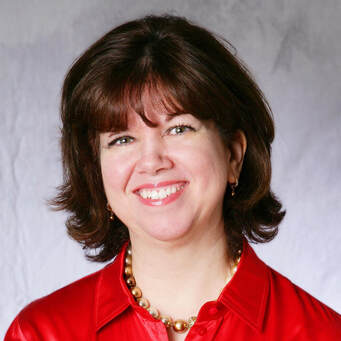 I am pleased to profile leading lawyer, advocate, and entrepreneur Lorin MacDonald. Read on for Lorin's story and advice: 1. Tell me a little about your practice or business. I was born with a profound hearing loss in both ears and have long been an advocate for inclusion. I have a niche human rights law practice focusing specifically on discrimination as experienced by people with disabilities. One of my cases related to the right to equal access to public washrooms being featured on the front page of the Toronto Star in 2017, leading to much discussion as it went viral around the world. However, change is at a glacial pace and it is frustrating, for both me and my clients, to experience the delays within the Human Rights Tribunal of Ontario. Due to my overriding desire to effect change that will benefit all Canadians, last year I created HearVue, a social enterprise to advance inclusive and accessible spaces. The initial vehicle was to highlight captioning at live events to demonstrate how it benefits all attendees – those living with hearing loss, English as a Second Language users, people with learning disabilities, and the wider audience. A month after launching, HearVue’s first trial event took place in Hamilton, Ontario with Michelle Obama. In the six months before COVID-19 shut down live events, HearVue’s captioning appeared before thousands, garnering rave reviews and building much-needed awareness. 2. Why did you go to law school? It was quite serendipitous. I was the Executive Director of a non-profit agency in Toronto when funding cutbacks resulted in closure. I moved back to my hometown of Port Dover, Ontario (a small town on the north shore of Lake Erie, approximately two hours south-west of Toronto) to regroup and consider my future plans. Unfortunately, shortly thereafter I was involved in a car accident that required extensive recovery time. My personal injury lawyer asked what my future plans were, and I mused about going back to school. He asked if I had ever thought about law school, said he thought I’d be good at it, and gave a plug for his alma mater, Western University. I thought, ‘How hard can that be?’, and only applied to Western as a mature student. As a long-time advocate for people living with disabilities, I knew that having a fuller understanding of the law would allow me to be more effective in enacting change. 3. How did you get to where you are today? Design? Chance? Both? Chance, with respect to deciding to go to law school. However, my time at Western was fraught with challenges. First, I needed to break ground to receive the appropriate form of accommodation for me, which was real-time captioning. After my first year at law school, I was diagnosed with cancer, so there were surgeries and treatments, pain and heartbreak from that point forward but I did finish, taking an extra 18 months to do so. My legal education paired with my passion for accessibility has proved invaluable as I do my small part to effect positive change, through my human rights law practice and my social enterprise. Out of pain, my passion grew and led to a plan. 4. What is your most significant achievement? What are you proud of? There are three events that hold a special place in my heart, all related to my passion for accessibility. The first, being part of a team the summer before law school that hosted a forum at Western University to encourage the provincial government that the Ontarians with Disabilities Act needed to be replaced with stronger accessibility legislation. The event took place at the end of my first week in law school in 2004 and was fully accessible – captioning, ASL interpreters, alternate formats, attendant care, water bowls for guide dogs – it was magical to see everyone be able to participate in such important advocacy. Six weeks after the forum, the Accessibility for Ontarians with Disabilities Act (AODA) was introduced and fast-tracked to unanimous passage in May 2005. The second achievement happened in March 2017 when my client’s fight for equal access to a restaurant washroom was featured on the front page of the Toronto Star. This led to much discussion and awareness as it went viral around the world. My most recent achievement occurred when I saw first the trial of HearVue’s captioning with Michelle Obama, then the full launch a week later. As I was listening to Haben Girma (the first Deafblind person to graduate from Harvard Law School) talk about the importance of captioning, tears were streaming down my face as her words were captured on the screen by my social enterprise! Several events ensued and I was delighted to hear many attendees say how much they benefited from it. 5. What are some key challenges, and more importantly, opportunities for women in law? I have good authority to speak about the challenges of being a woman with a sensory disability in the practice of law. The challenges are many. Because sensory disabilities related to hearing and sight rely heavily on people and developing technology, it can take longer to get the same results. Attitudes are difficult to overcome, as people have preconceived ideas of what you can (and cannot) do. I have also found it very challenging with the medical model vs. the social model of disability is employed; those of us living with disabilities need to be “fixed” so that we fit into the mold of “normal” society. This is so limiting; it’s far better to recognize how varied perspectives are invaluable in a diverse society. However, I have personally found that “diversity & inclusion” initiatives often do not include disabilities, be they visible, invisible, or episodic. And these challenges are why I persist, to gently (and sometimes not so gently!) encourage people to get on board so we can get on with the job. It’s only a big deal if you make it one. 6. What advice would you give a woman starting her legal career? Mentorship is key. Join your provincial Bar Association in law school, then your local law associations as well as professional associations. Show up for learning opportunities. Network, network, network. And add value to your connections. Did you come across an article that may be of interest to a colleague? Send it along with a note. Do you see an opportunity to connect two colleagues to each other? Don't hesitate. Always be kind within the legal profession - it is surprisingly small. To quote the late Maya Angelou: "I've learned that people will forget what you said, people will forget what you did, but people will never forget how you made them feel." Go out of your way - it will serve you well! ------------------------------------------------------------------------------------------------------------------------------------------- Thank you Lorin for sharing your story and advice to the readers of this blog. I really appreciate it. Lorin was also recently nominated (along with several other Women Leading in Law ladies) for the Canadian Lawyer Magazine's Top 25 Most Influential Lawyers award under the "Human Rights" category for her work as a human rights lawyer focusing specifically on discrimination as experienced by people with disabilities. Congratulations! Voting open until June 5th: here. I started this blog series because I was tired of hearing about women leaving law and wanted to hear about women leading in law. The "Women Leading in Law" series focuses on good news stories and highlights amazing women succeeding in the legal profession. Each post includes the profiled lawyer's answers to six questions. Prepare to be inspired! ICYMI - previous posts profiled the following amazing lawyers: Karen Yamamoto, Victoria Crewe-Nelson, Lynne Vicars, Kemi Oduwole, Anne-Marie McElroy, Jennifer Gold, Jordana Goldlist, Megan Keenberg, Yadesha Satheaswaran, France Mahon, Sarah Molyneaux, Richa Sandill, Vivene Salmon, Kim Whaley, Alisia Grenville, Frances Wood, Maggie Wente, Anita Szigeti, Neha Chugh, Christy Allen & Nancy Houle, Suzie Seo, Kim Gale, Alexi Wood, Melissa McBain, Erin Best, Gillian Hnatiw, Melanie Sharman Rowand, Meg Chinelo Egbunonu, Lisa Jean Helps, Nathalie Godbout Q.C., Laurie Livingstone, Renatta Austin, Janis Criger, May Cheng, Nicole Chrolavicius, Charlene Theodore, Dyanoosh Youssefi, Shannon Salter, Bindu Cudjoe, Elliot Spears, Jessica Prince, Anu K. Sandhu, Claire Hatcher, Esi Codjoe, Kate Dewhirst, Jennifer Taylor, Rebecca Durcan, Atrisha Lewis, Vandana Sood, Kathryn Manning, Kim Hawkins, Kyla Lee, and Eva Chan. 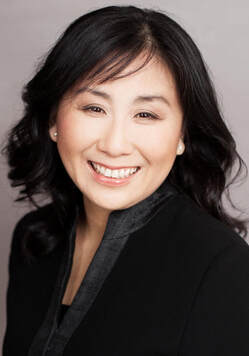 Meet our next leading lawyer and entrepreneur: Karen Yamamoto, Co-Founder of Executive Counsel Group. Read on for Karen's journey in law and some excellent advice for new lawyers at the beginning of their careers (well really for any lawyer!) 1. Tell me a little about your practice or business. I started my business with a colleague twelve years ago with the desire to help small to medium sized businesses who had all the typical legal issues that companies encounter but could not afford to hire full time legal counsel or the senior level external counsel fees. We wanted to fill that gap by offering senior level, flexible and cost-effective legal services. Over the past 12 years, I have helped companies of all sizes, in English, French and Japanese, as temporary on or off-site legal counsel or as their ad-hoc advisor in commercial law (specializing in privacy and technology). I’m called to the Ontario and Quebec bars and have been fortunate in the first half of my career to have worked in a wide variety of companies and industries in both Toronto and Montreal. I’ve worked at multi-national law firms, the multi-disciplinary law firm of Donahue Ernst and Young, innovative start up tech companies as well as large pharmaceutical companies. The variety kept me nimble and adaptable to different industries, work cultures, personalities and mandates. I didn’t realize it at the time but it prepared me well for the kind of services I offer today. 2. Why did you go to law school? When I was in my last year of the physiology program at McGill University, the faculty of law visited our faculty to tell us about how the world needed lawyers with science backgrounds. After completing my science degree and a year off to travel and live in Japan, I realized that the world of law appealed to me more than the sciences. As an immigrant who did not speak English or French when I first arrived in Canada, I experienced and abhorred injustice and discrimination. The idea of being able to somehow combine my interest in science, the power of words, sense of justice and the ability to make a real and positive difference greatly appealed to me and I applied for law school during my year in Japan. 3. How did you get to where you are today? Design? Chance? Both? Both. If the faculty of law had not made the presentation to the science students that day, I likely would have looked at alternative careers in science. Chance put people on my life path who influenced and/or supported me towards my career path - family, friends, community and business colleagues. But starting my own business was definitely by design so that I could have the type of practice and clients I wanted, charge the fees I wanted and have the flexibility I craved. 4. What is your most significant achievement? What are you proud of? Since I am part of the first generation to have attended university on my father’s side, I am proud of having become a lawyer and having worked at top tier firms and companies. However, I am most proud of having launched my own business on my own terms while remaining a very involved parent. There were a lot of naysayers who said my business model would not work and that I shouldn’t leave my “secure” job. I took a leap of faith despite my risk-averse nature and I am so glad that I did. It is incredibly rewarding to be able to contribute even in a small way to the success of a company whether the client is a 3 person company or a multinational organization. For example, I’ve helped multinational companies build robust privacy programs from conception to launch and also helped a young female entrepreneur successfully launch her technology platform in the male-dominated world of tech. I feel very invested in and loyal to my clients and feel the same from my long-time clients. 5. What are some key challenges, and more importantly, opportunities for women in law? I experienced gender discrimination earlier in my career when I worked in big law firms. I believe the issues that women face in big law firms tend to be more entrenched. Since I started my own business, gender discrimination is extremely rare and more times than not, I find being a woman has probably contributed to my success. My clients are looking for results and appreciate me for my collaborative and creative approach. Work life balance remains my biggest challenge but I find it gets easier as I (and the children) get older. It’s interesting to see that the majority of people volunteering at my children’s schools are women despite their full time careers. I have found over the years that the traits that I and a lot of my female friends and colleagues have are advantageous traits to have as a lawyer: community-minded, caring, reliable, collaborative, consensus building, multitasking and engaged. The majority of my clients are repeat, loyal and respectful clients. I strongly believe that these traits contribute greatly to strong, trusting and enduring relationships with clients. 6. What advice would you give a woman starting her legal career?
Thank you Karen for sharing your story and for your valuable advice and takeaway tips. I started this blog series because I was tired of hearing about women leaving law and wanted to hear about women leading in law. The "Women Leading in Law" series focuses on good news stories and highlights amazing women succeeding in the legal profession. Each post includes the profiled lawyer's answers to six questions. Prepare to be inspired! ICYMI - previous posts profiled the following amazing lawyers: Victoria Crewe-Nelson, Lynne Vicars, Kemi Oduwole, Anne-Marie McElroy, Jennifer Gold, Jordana Goldlist, Megan Keenberg, Yadesha Satheaswaran, France Mahon, Sarah Molyneaux, Richa Sandill, Vivene Salmon, Kim Whaley, Alisia Grenville, Frances Wood, Maggie Wente, Anita Szigeti, Neha Chugh, Christy Allen & Nancy Houle, Suzie Seo, Kim Gale, Alexi Wood, Melissa McBain, Erin Best, Gillian Hnatiw, Melanie Sharman Rowand, Meg Chinelo Egbunonu, Lisa Jean Helps, Nathalie Godbout Q.C., Laurie Livingstone, Renatta Austin, Janis Criger, May Cheng, Nicole Chrolavicius, Charlene Theodore, Dyanoosh Youssefi, Shannon Salter, Bindu Cudjoe, Elliot Spears, Jessica Prince, Anu K. Sandhu, Claire Hatcher, Esi Codjoe, Kate Dewhirst, Jennifer Taylor, Rebecca Durcan, Atrisha Lewis, Vandana Sood, Kathryn Manning, Kim Hawkins, Kyla Lee, and Eva Chan. 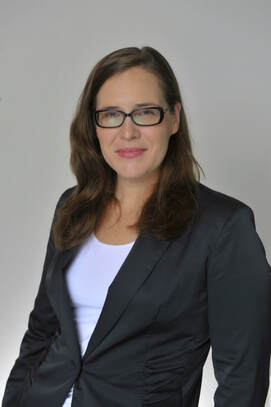 A reader wrote in and suggested that I profile this next leading lawyer, describing her as: "a wonderful supporter and mentor for women in law, particularly young women in law who obtained their law degrees out of Canada." I think that is a wonderful description. Meet Victoria Crewe-Nelson: 1. Tell me a little about your practice or business. I am very proud to say I’m part of the LAWPRO team that provides malpractice insurance to Ontario lawyers and law firms. Since 2018 I’ve been the VP Underwriting and Customer Service and the corporate secretary. Before joining LAWPRO in 2012 I was a lawyer in a mid-town Toronto firm. I liked to think of myself as an old-fashioned solicitor who had long-term clients who I got to help through their first home purchases, setting up their businesses, and acting on their estate matters. 2. Why did you go to law school? I wish I could say I went to law school to advocate for those who need it most, but that was the furthest thing from my mind. No, I went to law school to tick off a box and either go back into business or work for the government. When I was finishing my BA (in English and history) I went on a holiday to Scotland and fell in love with it. I came up with the plan that I’d go to law school in Scotland and after I graduated I would either stay in Europe or come back to Canada and resume my life as an office worker. But I was definitely not going to be a lawyer. As it turns out I did get into the University of Edinburgh and things started to change for me. I got excited about my studies. I began to enjoy the beauty of the law. I was cajoled into entering mooting competitions and wound up loving it. But even when I graduated I didn’t think I’d be a lawyer. After returning to Canada and working for a year, I applied with the National Committee of Accreditation to see what it would take to convert my Scottish law degree into a Canadian one. As it turns out, it was two years of law school. So I spent one year at the University of Ottawa, and one year at the University of Toronto. If someone had told me ahead of time that (i) I would actually want to be a lawyer; and (ii) that if I went to Scotland it would be onerous to qualify in Canada, would I still have gone to Edinburgh? No. And that’s a tragedy. What I gained from studying at Edinburgh had a big impact on me and I wouldn’t want to have lost that opportunity. 3. How did you get to where you are today? Design? Chance? Both? Chance played a large role in how I got to where I am. When I was at the University of Ottawa I was fired up to get my Masters in Tax Law and eventually teach. At the University of Toronto I got caught up in the idea of practising in big law and started applying for an articling position. I made a hash out of every articling interview I had. It didn’t help that I had no experience summering in law firms, but I also stink at networking so the rounds of cocktail parties were a nightmare for me. But one lawyer very kindly put me in touch with another lawyer he thought could benefit from an articling student. My principal was a fantastic lawyer and gentleman (William Sharpe) who taught me so many facets of what it takes to be a good lawyer. I was supposed to round out my articles with three months of practice with another firm, but I wound up staying at the second firm for almost ten years. I loved it. I loved developing relationships with my clients and knowing that they could count on me to make things better. I loved the interaction I had with the clerks and lawyers in the firm. I wanted to test myself and each time I came up with a clever solution and was recognized for it I felt like I was changing into the best version of myself. A lot of the best things about that experience were attributable to the woman I worked under for many years (Laura Legge). She showed me how to be strong, and empathetic; how to treat your staff and the clients who need help with the utmost respect; and how to be a great lawyer without sacrificing being a devoted partner and mother. After she died, I lost something. A big part of what I loved about going into the office every day was tied up with her, and I felt her loss every day. So I decided to make a break. But would it be setting up my own practice or going in-house? I went to a CPD where one of the speakers was from LAWPRO (Deborah Petch) and I liked her. What she had to say about her work at LAWPRO resonated with me. Shortly afterwards I saw an advertisement for a claims position. I told one of the partners I was applying for it, but I didn’t expect much to come from it. As it turns out, LAWPRO contacted me but suggested I try for a different position. I did and wound up in their underwriting department. Instead of managing claim files, I get to study what causes claims, and craft the E&O coverage that is fair to respond to these risks. I get to oversee our customer service centre and stay in touch with the realities of today’s practice environment. I somehow lucked out with the perfect job for me and each day I feel joy when I’m working. 4. What is your most significant achievement? What are you proud of? There are so many things I’ve valued about my time in private practice and now working at LAWPRO. Some of my fondest memories are the hand-written notes from clients telling me how I and my team helped them navigate a legal problem. I liked really talking with clients about what was going on, and knowing that they could go to any lawyer but they came back to me because they had confidence in what I could do for them. One thing I’m very proud of now is the excess professional liability program that LAWPRO has. I was the chief underwriter of it for many years and I loved watching it grow and respond to claims for those small law firms it is meant to protect. Outside of work, I’m proud of my family, which is made up of the widest range of personalities you could hope to meet. I enjoy my time on volunteer boards and doing movie marathons with my kids. I give thanks every day for the support shown to me by my husband that has allowed me to pursue my non-traditional path. 5. What are some key challenges, and more importantly, opportunities for women in law? Something that held me back at the start of my career was a lack of confidence in myself. I don’t remember any good answers I gave to interview questions, but I can remember every bad answer. When I went to court I focused on how I didn’t get a perfect result for my client, instead of celebrating a positive outcome. Having mentors demonstrate their belief in me did a lot to help me overcome this. Watching other women in law who would marvel at how well they did at things (even when I knew I would have been devastated with the same result) helped me realize that my expectations were too high. As someone who hates networking, it was a challenge for me (and to be honest, it still is). But it’s an important skill to have. Pro tip: go in well prepared. If you want to share information with someone, prepare a summary ahead of time so you know what points to tick off. If you’re terrified of long silences, have three go-to anecdotes you can share that will break the ice. Remember to ask questions and show the other person you’re interested. And be authentic – as uncomfortable as you feel in some situations, don’t try to come across as someone other than yourself because people will always know. When I was in practice, I saw the benefit of letting clients talk out their issues. I’d sometimes see others try to rush them through, but by letting them get it all out it made communicating easier from that point forward, and you knew some of the weight had come off their shoulders. I think a lot of women have an advantage in that regard, and can show empathy in the workplace and gain valuable insight into what their clients really need. The client who feels heard and who you communicate well with is less likely to blame you if things go wrong, less likely to sue you, and can be your greatest source of referrals. 6. What advice would you give a woman starting her legal career? If I was starting my career all over, I would hope to know the value of a good mentor. Or a lot of good mentors. People who are already established in their careers can be surprisingly easy to talk to and bounce ideas off. What puts off a new connection is if they think you’re trying to sell them something or have them get you a job. Maybe down the road that’s okay, but when first meeting someone, it should be about sharing ideas and advice and building a relationship. You can find wonderful mentors in the workplace, universities, from volunteer activities, and in your broader social circles. Or you can try the Law Society’s Coach and Advisor Network to get you started. Not enough women stay in private practice in the long term. There are a lot of reasons for this, but I have to say I really respect all those women who stay in firms and carve out balanced lives. We have to move away from judging each other (the eye rolls when someone leaves at 5:00, the “I don’t know how you do it” that hints that your family is suffering because of the long hours you put in). Women have so much to offer and shouldn’t feel uncomfortable in any workplace if they’re working hard and doing their best to have a balanced life. My closing advice is strike your own path and do things your way. You’ll like your job so much more if you make it uniquely your own. And I can’t say enough about approaching work with a “can-do” attitude. Seeing the opportunities every day, instead of the obstacles, makes work more fun for both you and the people you work with. ------------------------------------------------------------------------------------------------------------ Thank you Victoria for sharing your wisdom with us. (And I agree, I dislike hearing the "I don't know how you do it" comment. No one ever says that to my husband who is also juggling family/work/life. The underlying assumption and judgment aimed at women is aggravating.) I started this blog series because I was tired of hearing about women leaving law and wanted to hear about women leading in law. The "Women Leading in Law" series focuses on good news stories and highlights amazing women succeeding in the legal profession. Each post includes the profiled lawyer's answers to six questions. Prepare to be inspired! ICYMI - previous posts profiled the following amazing lawyers: Lynne Vicars, Kemi Oduwole, Anne-Marie McElroy, Jennifer Gold, Jordana Goldlist, Megan Keenberg, Yadesha Satheaswaran, France Mahon, Sarah Molyneaux, Richa Sandill, Vivene Salmon, Kim Whaley, Alisia Grenville, Frances Wood, Maggie Wente, Anita Szigeti, Neha Chugh, Christy Allen & Nancy Houle, Suzie Seo, Kim Gale, Alexi Wood, Melissa McBain, Erin Best, Gillian Hnatiw, Melanie Sharman Rowand, Meg Chinelo Egbunonu, Lisa Jean Helps, Nathalie Godbout Q.C., Laurie Livingstone, Renatta Austin, Janis Criger, May Cheng, Nicole Chrolavicius, Charlene Theodore, Dyanoosh Youssefi, Shannon Salter, Bindu Cudjoe, Elliot Spears, Jessica Prince, Anu K. Sandhu, Claire Hatcher, Esi Codjoe, Kate Dewhirst, Jennifer Taylor, Rebecca Durcan, Atrisha Lewis, Vandana Sood, Kathryn Manning, Kim Hawkins, Kyla Lee, and Eva Chan.  It was a lovely surprise to learn last week that I was nominated for the Canadian Lawyer Magazine Top 25 Most Influential Lawyers 2020 award under the "Changemakers" category. Anyone and everyone can vote at this link HERE. You will also see some of the lawyers featured in past Women Leading in Law profiles nominated as well including Vivene Salmon, Kyla Lee , Meg Chinelo Egbunonu, Atrisha Lewis, and Charlene Theodore. Voting is open until JUNE 5th! 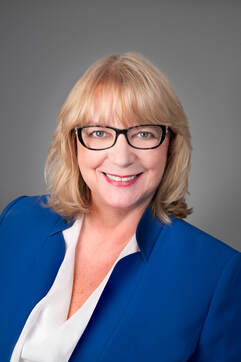 I met our next leading lawyer through my volunteer work with the Ontario Bar Association. Lynne Vicars is the immediate Past President of the OBA and during her time as President Lynne started the Momentum campaign focussed on advancing gender equality in the legal profession. Read on for Lynne's story: 1. Tell me a little about your practice or business. As a long-time senior corporate counsel for Canada’s most international bank, my legal practice focussed on efficient civil litigation resolution, oversight of forensic investigations and ensuring timely, thorough regulatory responses. All of this required developing innovative practices in information governance, eDiscovery and electronic evidence management. Now, retired from the bank, I share this knowledge with clients at Heuristica Discovery Counsel LLP in our unique eDiscovery practice. At Heuristica I oversee a talented team of lawyers dedicated to helping clients make critical, strategic decisions relating to digital evidence. I was especially attracted to Heuristica because of its track record in delivering high-quality and cost-effective solutions in an emerging practice area. Decisions made regarding evidence can have significant legal implications, including admissibility, proportionality, and defensibility. These impacts can include prejudicial evidentiary rulings, cost sanctions and the inability to recover costs. Heuristica lawyers strategize with clients to make proactive decisions about document discovery then help them find, organize and classify relevant evidence from a sea of unstructured email and other data using state-of the-art technology. In short, my practice is a unique blend of leadership, law and technology. 2. Why did you go to law school? My dear mum, born in 1924, understandably had an old-world view. When I started high-school she suggested I take typing so that I could, “be a legal secretary and marry a lawyer”. She held lawyers in high regard. Although I found law intriguing, I viewed lawyers as scary and intimidating. When I nearly failed the typing class but showed promise in math, Mum suggested I could be a bank teller instead. She died the next year and I became a bank teller four years later. After climbing to management level at the bank, but still feeling professionally unfulfilled, I went back to school. A career counsellor at the University of Western Ontario remarked that my GPA was high enough to be admitted to law school or an MBA program. An MBA had crossed my mind but never before had I imagined that I could be a lawyer. Lawyers were smart and ambitious – I didn’t see myself as either of those things. The fact that someone else believed that I might have what it takes to be a lawyer was the spark I needed to start me on the path to my career in law. 3. How did you get to where you are today? Design? Chance? Both? Though outwardly it might appear my career path was carefully designed and followed, in reality there have been many meanderings along the way. I had hoped to clerk at the Alberta Court of Appeal. When I disclosed in my interview that my dream was to be in-house counsel for a bank within 5-years, the awkward silence followed by one of the Justices commenting, “then you’ll be moving back east”, was a clear indication that I had blown that opportunity. When my then husband’s career caused me to give up my practice with a firm I loved in Edmonton, I joined a small firm in Red Deer. There I developed a broader array of practice areas, which ultimately assisted me in landing a position as corporate counsel with the bank. There was never any plan to become President of the Ontario Bar Association. That was pure chance, arising from my deeper engagement in a truly wonderful organization with kind, supportive members and staff who mentored, coached and encouraged me to be my best self. My journey is far from over. Although I’ve retired from the bank I feel the most significant, fulfilling phase of my career is only just beginning, still without a detailed plan. 4. What is your most significant achievement? What are you proud of? I have raised four brilliantly creative children, a daughter and three sons, and am a proud step-mom to three equally amazing step-daughters, all of whom have grown to be kind, compassionate adults who care about other people and our planet; who embrace diversity and inclusion and do not tolerate discrimination in any form. The extent to which I may have even slightly influenced any of those qualities in these remarkable young people, is my most significant achievement. I am profoundly proud of each of them! 5. What are some key challenges, and more importantly, opportunities for women in law? The Momentum Campaign we mounted during my year as president of the OBA shone new light on the frustratingly perpetual problem of gender inequality in the legal profession and the even deeper discrimination arising from intersectionality. Although progress has been made, this is still the most incessant challenge women in law continue to face. However, I am optimistic, because I believe that technology offers great opportunity for all lawyers both in terms of how they work and where they work. COVID-19 social distancing is quickly demonstrating how lawyers can serve clients from anywhere. It’s easy to imagine that remote work will remain acceptable, even commonplace for lawyers in the future. The myth that working remotely is less productive has been forever smashed. Virtual offices allow lawyers to provide legal services with much lower overhead and thereby offer legal services more cost effectively to clients. Innovative legal technology: predicting likely legal outcomes and damages; automating legal research functions; supporting auto-citations, electronic signing, document review and exchange; and enabling electronic hearing rooms is here now. Women lawyers who embrace these new technologies will be on equal footing with the men who do so and will excel as compared to the lawyers who remain stuck in the past. Technology has the potential to be a great equalizer for women in law but we will need all genders working together as allies, to achieve true gender equality. 6. What advice would you give a woman starting her legal career? Define what success means to you. Don’t try to measure up to someone else’s definition. Set stretch goals for yourself but ensure you celebrate the milestones along the journey of your career. Don’t wait until the finish line to take your first measurement, instead take pride in each accomplishment, starting with the day you are/were accepted to law school. Don’t be afraid to take risks - a chance not taken is always an opportunity missed. Reach back and offer your hand to a woman following behind you on her own journey in law. A career in law is a great privilege. Be kind, share what you learn and enjoy every minute of it! ------------------------------------------------------------------------- Thank you Lynne for agreeing to participate in this series and for sharing some of your experiences and advice. I started this blog series because I was tired of hearing about women leaving law and wanted to hear about women leading in law. The "Women Leading in Law" series focuses on good news stories and highlights amazing women succeeding in the legal profession. Each post includes the profiled lawyer's answers to six questions. Prepare to be inspired! ICYMI - previous posts profiled the following amazing lawyers: Kemi Oduwole, Anne-Marie McElroy, Jennifer Gold, Jordana Goldlist, Megan Keenberg, Yadesha Satheaswaran, France Mahon, Sarah Molyneaux, Richa Sandill, Vivene Salmon, Kim Whaley, Alisia Grenville, Frances Wood, Maggie Wente, Anita Szigeti, Neha Chugh, Christy Allen & Nancy Houle, Suzie Seo, Kim Gale, Alexi Wood, Melissa McBain, Erin Best, Gillian Hnatiw, Melanie Sharman Rowand, Meg Chinelo Egbunonu, Lisa Jean Helps, Nathalie Godbout Q.C., Laurie Livingstone, Renatta Austin, Janis Criger, May Cheng, Nicole Chrolavicius, Charlene Theodore, Dyanoosh Youssefi, Shannon Salter, Bindu Cudjoe, Elliot Spears, Jessica Prince, Anu K. Sandhu, Claire Hatcher, Esi Codjoe, Kate Dewhirst, Jennifer Taylor, Rebecca Durcan, Atrisha Lewis, Vandana Sood, Kathryn Manning, Kim Hawkins, Kyla Lee, and Eva Chan. 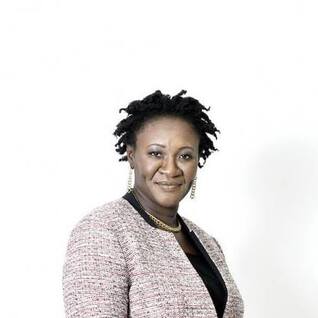 Today's profile features Kemi Oduwole. I was introduced to Kemi through her executive assistant, Veronica, who told me I should definitely profile Kemi. After reading her answers I agree completely. I love learning about all of these amazing leading lawyers and different practice areas: 1. Tell me a little about your practice or business. I am a partner at Topmarké Attorneys LLP, a medium sized boutique in Toronto. We practice all areas of law including immigration, litigation, family law, child protection, business law, corporate and mental health law. I specialise in mental health law, family law but predominantly immigration and refugee law. I am a foreign trained lawyer from Nigeria. I had practiced corporate law and was involved in civil litigation for years before teaching at the Nigerian Law School, where I was for about 10 years before relocating to Canada in 2010. 2. Why did you go to law school? The first thing that attracted me to law was the robe of lawyers (wig and gown). I loved seeing lawyers in their robes on TV. At a point in high school, I was discussing my career options with my dad and I mentioned law. He found it rather strange because no one in my extended family studied law. We had doctors, engineers, architects but no lawyer. My father, an accountant himself, tried so much to motivate me to study accounting. In my bid to convince my father that law was better for me, I discovered during my research the enormous role of lawyers in society. I got hooked and have since never let law go. I have always enjoyed solving problems. I saw law as a tool of solving individual and societal problems. Studying law for me was a means of developing skills to solve problems. 3. How did you get to where you are today? Design? Chance? Both? I got to where I am today by design and divine direction. From the moment I decided to study law, I worked harder than I had ever done in my life. I studied hard. After law school, I worked in a private practice for about five years before I started teaching at the Nigerian Law School. My motivation for coming to Canada was actually to pursue my PhD. That was the main reason my family applied for the Canadian Permanent Residence. I have had the opportunity of travelling to other countries for my PhD but I did not want to leave my family. Canadian Permanent Residence gave us the option of being together as a family while still following my dreams. Upon getting to Canada, I could not start the PhD program immediately. I decided, while I was waiting, to undertake a master’s program, affording me the opportunity to better understand the Canadian educational system. I also decided to start the Canadian bar licencing process at the same time. The truth was that I had no interest in practice at that time. I just thought it would be a good use of my time and it would afford me the opportunity of studying the Canadian legal framework, which would be a great foundation for my PhD. I was lucky that I was able to secure admission at the University of Toronto. While at U of T, I simultaneously wrote my NCA and bar exams the same year. I also applied for PhD at U of T. Unfortunately, I did not secure an admission. Fortunately for me I passed my bar exams, so I decided to go into practice. I was reluctant to go into practice because it was not in my plan, but my husband encouraged me to try it while I put in another application for PhD the next year. That was how I started practicing and have not since then applied for a PhD program. This is where the divine direction comes in. 4. What is your most significant achievement? What are you proud of? I have two master's degrees, one from University of Lagos in Nigeria and the other from University of Toronto. I also have an uncompleted master’s program from the University of London. As a law teacher, I have published law textbooks, written articles in journals and presented at seminars. My greatest achievements however are my students and clients. I am delighted when I see my students excel and my clients happy. During my time as a teacher, I went outside the box in my teaching pedagogy to ensure that my students gained knowledge and had the ability to produce from that knowledge. I have a number of my students all over the world who have achieved a lot and made an impact in society. I am always excited when I travel and have people walk-up to me to introduce themselves as my past students and particularly tell me how I had motivated them. In my current practice, I work extensively with refugees, and foreign nationals seeking to migrate or remain in Canada. I have had moments when I cried with my clients at the refugee Board after hearings. We’ve had clients visit our office hungry with their children because they were not used to the food served at the shelters. Sometimes, it is very difficult to get information from such clients due to the trauma they have experienced. It is uplifting when you are able to assist the vulnerable. It is however not always a success story. I have had nights when I would be unable to sleep because I know my client is being deported; or the pumping of blood in my heart when I receive decisions from the refugee board wondering whether it is positive or negative. I’ve had days whereby I had to take a moment and pray for my clients because of the fear I have for them if their claims were not accepted. I will never forget a young lady who had been in immigration detention for some time due to her past criminality. She was denied bail and was about to be deported when my firm was retained at the last minute. Upon reviewing her file, her case appears to be a lost battle with deportation looming in the horizon. However, I could not give up on her. Within a limited time we were at the Federal Court and her removal was stayed. It was a celebration in our office. The joy was as if we were each given gold medals. Not only was her removal stayed we were able to secure bail for her by innovative means approved by the immigration division. It is stories like and my ability to see family reunite when they are sponsored after years of separation that keep me going. With respect to family law, it is extremely difficult when you see people who love themselves turn into enemies, and then they have their children, who unfortunately are used as pawns for bargains, in the middle. From experience, I have seen that it is the hurt and emotional disappointment that urges some irrational decisions which unnecessarily prolong such matters. I am quick to advise my clients that in issues like this, the truth is there is no victor or loser. The objective is to find an amicable resolution. I make them see realistically that, the more the matter is dragged on, the more legal fees would be incurred, and the more they may be worse off in the end. That is why the initiative and promotion of collaboration in resolving family law disputes is largely advocated for. My greatest achievement is the success of my clients. I have had young refugee children especially teenagers who had troubles due to their past experiences. I have introduced some to mentors and I have mentored some and they are on the right track and I am very proud of them. A number of them are now graduates. It is always a joy when you see vulnerable people who came to Canada with nothing, fearful for their lives and in turn become successful members of society. That is our success story as a firm and as a society. Our clients are not numbers or files, they are people and they matter to us. 5. What are some key challenges, and more importantly, opportunities for women in law? Gender discrimination still exists in this profession. Notwithstanding, there are countless opportunities for women and we are constantly making impacts within the field. We as women ourselves need to constantly encourage one another to take charge of these opportunities. We need to share information and rely on each other where ever and whenever there is an opportunity to do so. 6. What advice would you give a woman starting her legal career? Determination and self-realization is key. It is very important for women to believe in themselves, and they should not be afraid to take bold steps. Never allow people to define you. In addition, being surrounded by a support network is amazing. ----------------------------------------------------------- Thank you Kemi for taking the time to answer these questions and sharing your practice with us. I started this blog series because I was tired of hearing about women leaving law and wanted to hear about women leading in law. The "Women Leading in Law" series focuses on good news stories and highlights amazing women succeeding in the legal profession. Each post includes the profiled lawyer's answers to six questions. Prepare to be inspired! ICYMI - previous posts profiled the following amazing lawyers: Anne-Marie McElroy, Jennifer Gold, Jordana Goldlist, Megan Keenberg, Yadesha Satheaswaran, France Mahon, Sarah Molyneaux, Richa Sandill, Vivene Salmon, Kim Whaley, Alisia Grenville, Frances Wood, Maggie Wente, Anita Szigeti, Neha Chugh, Christy Allen & Nancy Houle, Suzie Seo, Kim Gale, Alexi Wood, Melissa McBain, Erin Best, Gillian Hnatiw, Melanie Sharman Rowand, Meg Chinelo Egbunonu, Lisa Jean Helps, Nathalie Godbout Q.C., Laurie Livingstone, Renatta Austin, Janis Criger, May Cheng, Nicole Chrolavicius, Charlene Theodore, Dyanoosh Youssefi, Shannon Salter, Bindu Cudjoe, Elliot Spears, Jessica Prince, Anu K. Sandhu, Claire Hatcher, Esi Codjoe, Kate Dewhirst, Jennifer Taylor, Rebecca Durcan, Atrisha Lewis, Vandana Sood, Kathryn Manning, Kim Hawkins, Kyla Lee, and Eva Chan. 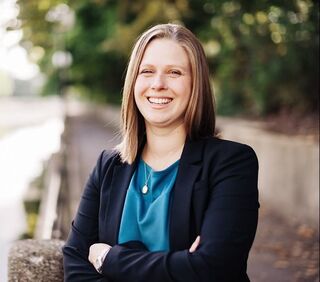 Meet Anne-Marie McElroy a criminal defence lawyer at McElroy Law in Ottawa. I love seeing all of these criminal defence lawyers succeeding at law. (You are writing down their names and adding them to your referral lists, right?) Read on for Anne-Marie's story and her journey in law: 1. Tell me a little about your practice or business. I am a sole practitioner, doing exclusively criminal defence work. I have been on my own since 2015, when I came back from a maternity leave with my second child. I began my solo career with precisely one file and have grown it from there! My practice has evolved into a mix of trial work, pleas and appeals. I really enjoy working with clients and helping them to navigate their way through the criminal justice system. I also love the flexibility that comes with solo practice. It was a huge relief to come back to work on my own terms and according to my own schedule. The shift also gave me an opportunity to focus on other things, such as my blog where I write about new cases, legislation and other issues in criminal law. The blog has been an amazing way to keep current and also indulge my love of writing, as well as providing some opportunities to speak to the media. I think that public legal education is so important and I’m really proud to be able to contribute to it in my own way. 2. Why did you go to law school? I really had no idea that I would ever be a lawyer growing up, but I knew that I wanted to have a job that was challenging intellectually and also helped people. Towards the end of my undergrad, I remember reading an essay by Jacques Derrida about refugees and it sort of clicked that law could be an area that is people-focused but also theoretical. And then I found myself watching Legally Blonde on my couch one evening and I thought again, maybe law is an option? I applied for law school with the intention of working in policy, but then thought I should probably get called to the bar. Mid-way through my articles, I helped one of the partners at my firm with a jury trial and I was hooked. 3. How did you get to where you are today? Design? Chance? Both? Given that part of my decision to apply to law school was driven by Elle Woods, I would say mostly chance, but also a bit of design. I never planned too many steps ahead, but kept moving forward in a direction that felt fulfilling and challenging. In law school, I loved constitutional law and criminal law – those were the two areas that I most connected with. I figured that criminal law would be the best way to combine those interests, so I articled at a criminal firm. My own practice has been more intentional, where I’ve worked to gain experience in all sorts of types of files and areas of criminal law. I have also done my best to give myself space to do things like write, present at conferences and volunteer. These sorts of extra-curricular things help me to stay engaged and excited about law. And while I work as a sole practitioner, I have built a strong network around myself so that I can have matters covered if I need to go to my kid’s Christmas concert or duck out for their dentist appointment. I wouldn’t say that I sat down on day 1 and mapped out this course, but my practice has grown intentionally in a way that aligns with my priorities both within and outside of work. 4. What is your most significant achievement? What are you proud of? Aside from a few particularly rewarding trials that come to mind, I am most proud of having grown a practice while parenting young kids. While both can be challenging and sometimes draining, they are both immensely rewarding. I am also very proud of having represented the Criminal Lawyer’s Association at the Senate Committee on Legal and Constitutional Affairs with respect to bill C-51 in the fall of 2018. It was a really interesting opportunity to advocate on behalf of the profession, drawing on my own trial experience and research, and to engage with those shaping the legislation. (Not that it really mattered – the bill was passed without any real changes, but the experience was great nonetheless!) 5. What are some key challenges, and more importantly, opportunities for women in law? Having a family while in private practice remains one of the most challenging things that a woman can undertake. Parental leaves are so difficult to take without having your practice decimated and it has led to many amazing, bright young women leaving private practice. Despite so many initiatives to retain women and promote equity practices, there is still so much work to be done. (I wrote about this with my colleagues Rebecca Bromwich and Juliet Knapton in "2019 Reality Check After the LSO Bencher Election: Parenting While (Criminal) Lawyering") In terms of opportunities, I think many women bring important qualities to law, particularly criminal law, that are huge assets in helping out clients. While law isn’t necessarily thought of as a caring profession, in many ways we are helping clients through an immensely stressful period of their lives. Women lawyers are often so well suited to listening and advocating effectively for our clients. Also, as the world shifts in the wake of the Me Too movement, women defence lawyers are often uniquely situated to represent accused persons in a way that is sensitive and ethical, avoiding rape myths and keeping trials streamlined and focused. 6. What advice would you give a woman starting her legal career? First off, don’t be afraid to chart your own path. When I first went out on my own, a colleague took me for lunch to discuss solo practice. He asked me, “Who do you want to be?” and listed off a number of our colleagues with different types of practices. The answer for me was none of those people. I respected them all immensely, but I needed to build something that was true to me: to be a fierce advocate for my clients while being an empathetic guide through the justice system, providing public legal education and engaging my brain in creative legal work. You can take bits of what others are doing, but don’t try to replicate anyone else exactly. Perhaps more importantly, find your people. This is such a tough job and it makes it so much easier if you have support from those around you. Find colleagues who will work through Charter issues with you, help you to prepare a cross-examination, answer the panicked mid-trial phone call on a discrete issue and listen to you complain at the end of a long day in court. You will be a better lawyer for it. -------------------------------------------------------------------------------------------------------------------- Such great advice Anne-Marie, thank you for taking the time to answer these questions and share your experiences. I started this blog series because I was tired of hearing about women leaving law and wanted to hear about women leading in law. The "Women Leading in Law" series focuses on good news stories and highlights amazing women succeeding in the legal profession. Each post includes the profiled lawyer's answers to six questions. Prepare to be inspired! ICYMI - previous posts profiled the following amazing lawyers: Jennifer Gold, Jordana Goldlist, Megan Keenberg, Yadesha Satheaswaran, France Mahon, Sarah Molyneaux, Richa Sandill, Vivene Salmon, Kim Whaley, Alisia Grenville, Frances Wood, Maggie Wente, Anita Szigeti, Neha Chugh, Christy Allen & Nancy Houle, Suzie Seo, Kim Gale, Alexi Wood, Melissa McBain, Erin Best, Gillian Hnatiw, Melanie Sharman Rowand, Meg Chinelo Egbunonu, Lisa Jean Helps, Nathalie Godbout Q.C., Laurie Livingstone, Renatta Austin, Janis Criger, May Cheng, Nicole Chrolavicius, Charlene Theodore, Dyanoosh Youssefi, Shannon Salter, Bindu Cudjoe, Elliot Spears, Jessica Prince, Anu K. Sandhu, Claire Hatcher, Esi Codjoe, Kate Dewhirst, Jennifer Taylor, Rebecca Durcan, Atrisha Lewis, Vandana Sood, Kathryn Manning, Kim Hawkins, Kyla Lee, and Eva Chan. |
Erin C. Cowling is a former freelance lawyer, entrepreneur, business and career consultant, speaker, writer and CEO and Founder of Flex Legal Network Inc., a network of freelance lawyers.
Categories
All
Archives
December 2022
|
|
(C) 2014-2024 Cowling Legal. All rights reserved.
|
Please note I am not currently practicing law.
Information on this website does not constitute legal advice and is for informational purposes only. Accessing or using this website does not create a solicitor-client relationship. See website Terms of Use/Privacy Policy. info@cowlinglegal.com
3080 Yonge Street, Suite 6060 Toronto,ON M4N 3N1 (appointment only) |
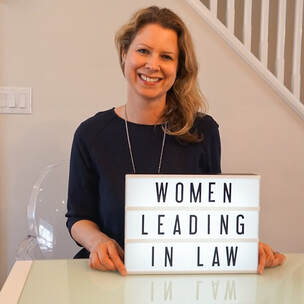
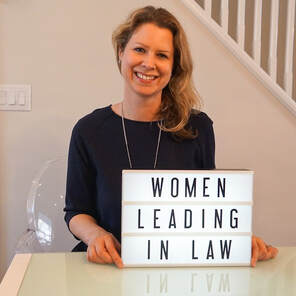
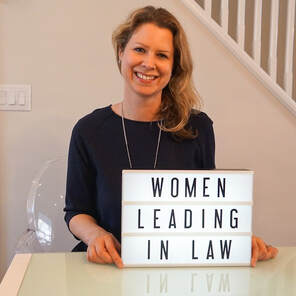
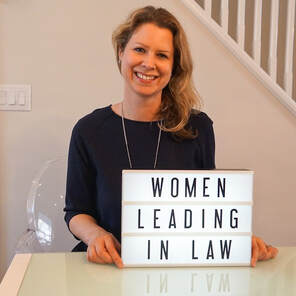
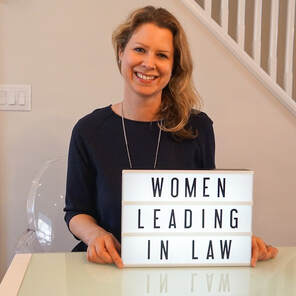
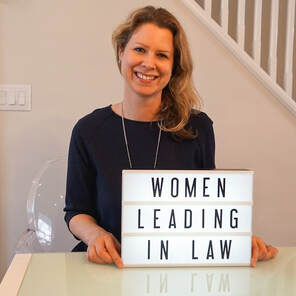
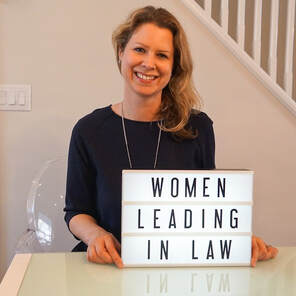
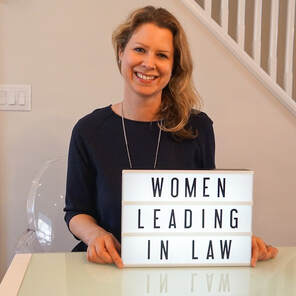
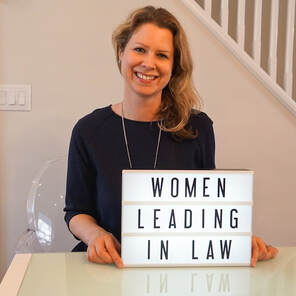
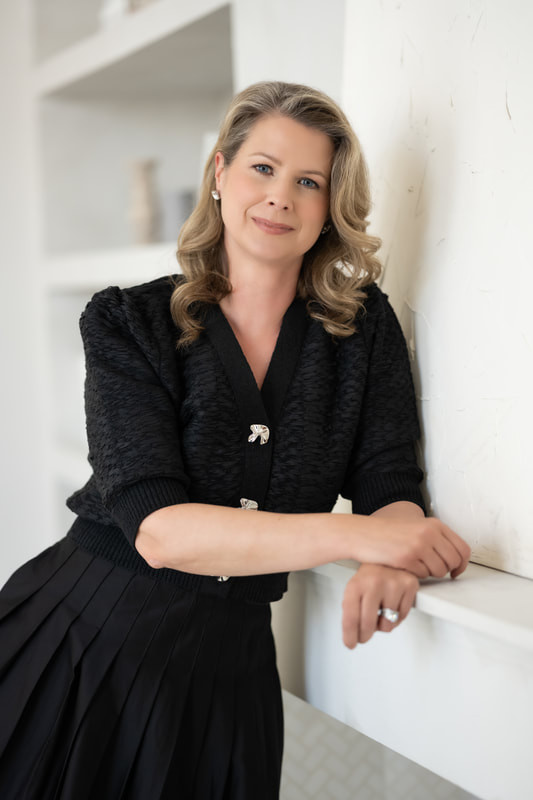





 RSS Feed
RSS Feed
